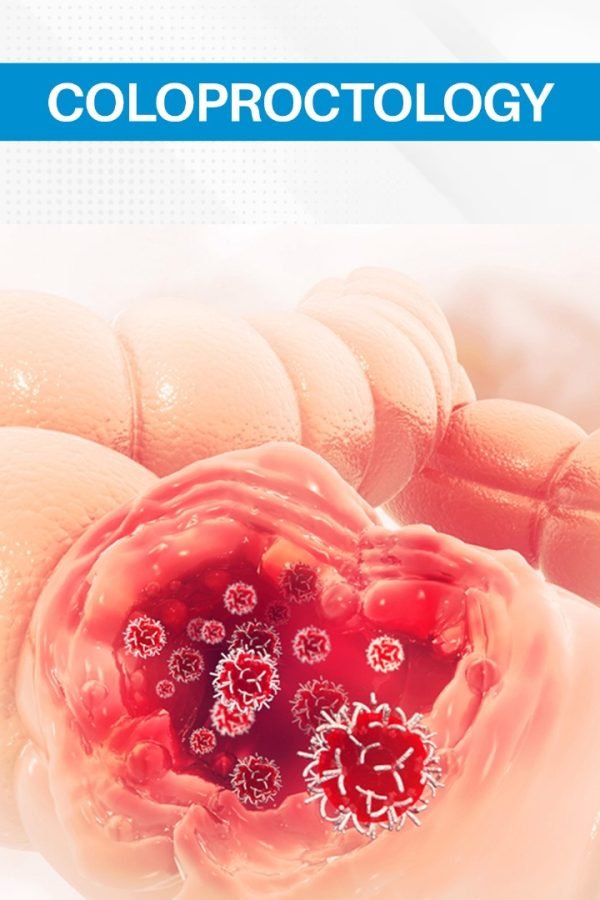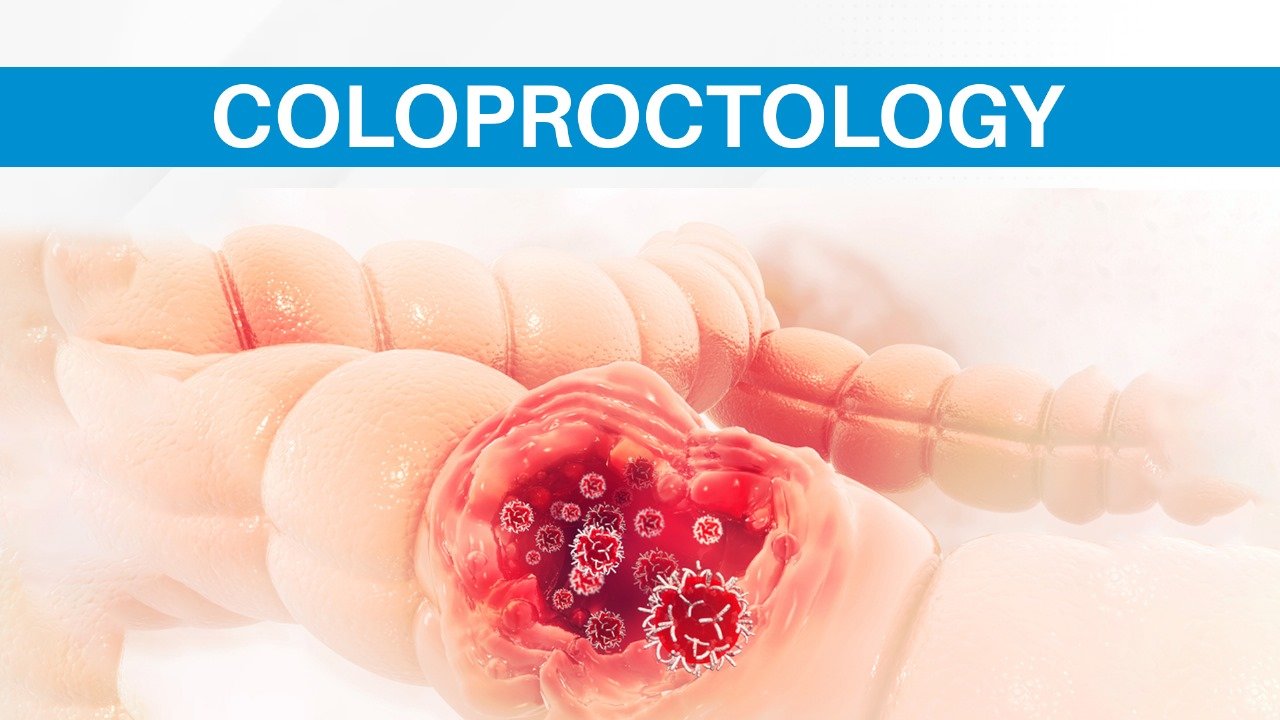- Abdominal Hernia Surgery in Dombivli
- Anal Fissure Laser Surgery in Dombivli
- Appendix Treatment in Dombivli
- Bariatric Surgery in Dombivli
- Best Laparoscopic Surgeon in Dombivli
- Blogs
- Cases Operated
- Colorectal Cancer Treatment in Dombivli
- Contact us
- Custom
- Dr Rahul Mahadar
- Dr. Dhanashree Mahadar
- Endoscopy Clinic in Dombivli
- Ent Surgeon in Dombivli
- Gall Bladder Cancer Surgery in Dombivli
- Gallbladder Stone Treatment in Dombivli
- Gastrointestinal Surgeon in Dombivli
- Hernia Surgeon in Dombivli
- Home
- How to Choose the Right Gastroenterologist Near You
- Laser Fistula Surgery in Dombivli
- Laser Piles Surgeon in Dombivli
- Pancreatic Cancer Treatment in Dombivli
- Services
- Specialities
- Stomach Cancer Treatment in Dombivli
- Testimonials
- Video


Coloproctology
Coloproctology, also known as colorectal surgery or proctology, is a specialized field of medicine focused on the diagnosis and treatment of disorders affecting the colon, rectum, and anus. It combines elements of both general surgery and gastroenterology to address a wide range of conditions, including but not limited to colorectal cancer, inflammatory bowel disease (such as Crohn’s disease and ulcerative colitis), hemorrhoids, anal fissures, fistulas, rectal prolapse, and fecal incontinence.
Goals of Coloproctology
- Diagnosis: One of the primary goals of coloproctology is to accurately diagnose various colorectal disorders through a combination of medical history, physical examination, endoscopic procedures (such as colonoscopy and sigmoidoscopy), imaging studies (like MRI, CT scans), and laboratory tests (including blood tests and stool tests).
- Treatment: Another important goal is to provide effective treatment options tailored to the specific condition and needs of the patient. Treatment modalities can range from medications and lifestyle modifications to surgical interventions, such as colorectal resection, hemorrhoidectomy, fistulotomy, sphincterotomy, and others.
- Improving Quality of Life: Coloproctologists aim to improve patients’ quality of life by alleviating symptoms, reducing pain and discomfort, and restoring normal bowel function whenever possible.
Diseases Treated by Coloproctology
Coloproctologist or Laparoscopic Gastrointestinal Surgeon treats a wide range of diseases, including-
- Hemorrhoids: Swollen and inflamed veins in the rectum and anus.
- Anal Fissures: Tears or cracks in the lining of the anus, causing pain and bleeding during bowel movements.
- Colorectal Cancer: Cancerous growths in the colon or rectum.
- Inflammatory Bowel Disease (IBD): Chronic inflammatory conditions of the digestive tract, including Crohn’s disease and ulcerative colitis.
- Diverticulitis: Inflammation or infection of small pouches (diverticula) in the digestive tract.
- Fecal Incontinence: Inability to control bowel movements, leading to involuntary leakage of stool.
- Anal Fistulas: Abnormal passages that form between the anus and the skin surrounding the anus.
- Rectal Prolapse: When part or all of the rectum protrudes from the anus.
- Colonic Polyps: Abnormal growths on the inner lining of the colon or rectum.
- Irritable Bowel Syndrome (IBS): A chronic disorder affecting the large intestine, characterized by abdominal pain, bloating, and changes in bowel habits.
Scope of Coloproctology
The scope of coloproctology encompasses the following areas-
- Colorectal Cancer: Screening, diagnosis, staging, and treatment of colorectal cancer, including surgery, chemotherapy, radiation therapy, and immunotherapy.
- Inflammatory Bowel Disease (IBD): Management of Crohn’s disease and ulcerative colitis, including medical therapy, endoscopic procedures, and surgical interventions when necessary.
- Anorectal Disorders: Diagnosis and treatment of conditions affecting the anus and rectum, such as hemorrhoids, anal fissures, anal fistulas, perianal abscesses, and fecal incontinence.
- Functional Bowel Disorders: Assessment and management of functional bowel disorders, including irritable bowel syndrome (IBS) and pelvic floor dysfunction.
- Pelvic Floor Disorders: Evaluation and treatment of pelvic floor disorders, such as rectal prolapse, rectocele, and pelvic floor dysfunction causing constipation or fecal incontinence.
Why Coloproctology is Used
Coloproctology is utilized for various reasons-
- Diagnostic Purposes: It is used to diagnose and identify the underlying causes of symptoms such as rectal bleeding, changes in bowel habits, abdominal pain, and anal discomfort.
- Therapeutic Interventions: Coloproctology offers a wide range of therapeutic interventions to manage and treat colorectal disorders effectively, including both conservative and surgical approaches.
- Preventive Care: Screening for colorectal cancer and precancerous conditions, such as polyps, is an essential aspect of coloproctology aimed at early detection and prevention of colorectal malignancies.
Benefits of Coloproctology
- Improved Health Outcomes: By accurately diagnosing and effectively treating colorectal disorders, coloproctology helps improve patients’ overall health outcomes and quality of life.
- Minimally Invasive Techniques: Advances in coloproctological techniques, such as laparoscopic and robotic-assisted surgery, allow for minimally invasive procedures, resulting in shorter hospital stays, faster recovery times, and reduced postoperative pain.
- Multidisciplinary Approach: Coloproctology often involves collaboration with other medical specialties, including oncology, gastroenterology, radiology, and pathology, to provide comprehensive care and tailored treatment plans for complex cases.
- Patient Education and Support: Coloproctologist or Laparoscopic Gastrointestinal Surgeon provides patient education and support, empowering individuals to actively participate in their treatment decisions, manage their condition effectively, and adopt healthy lifestyle habits.
Overall, coloproctology plays a critical role in diagnosing, managing, and treating a wide range of colorectal conditions, with the ultimate goal of improving patients’ quality of life and outcomes.

